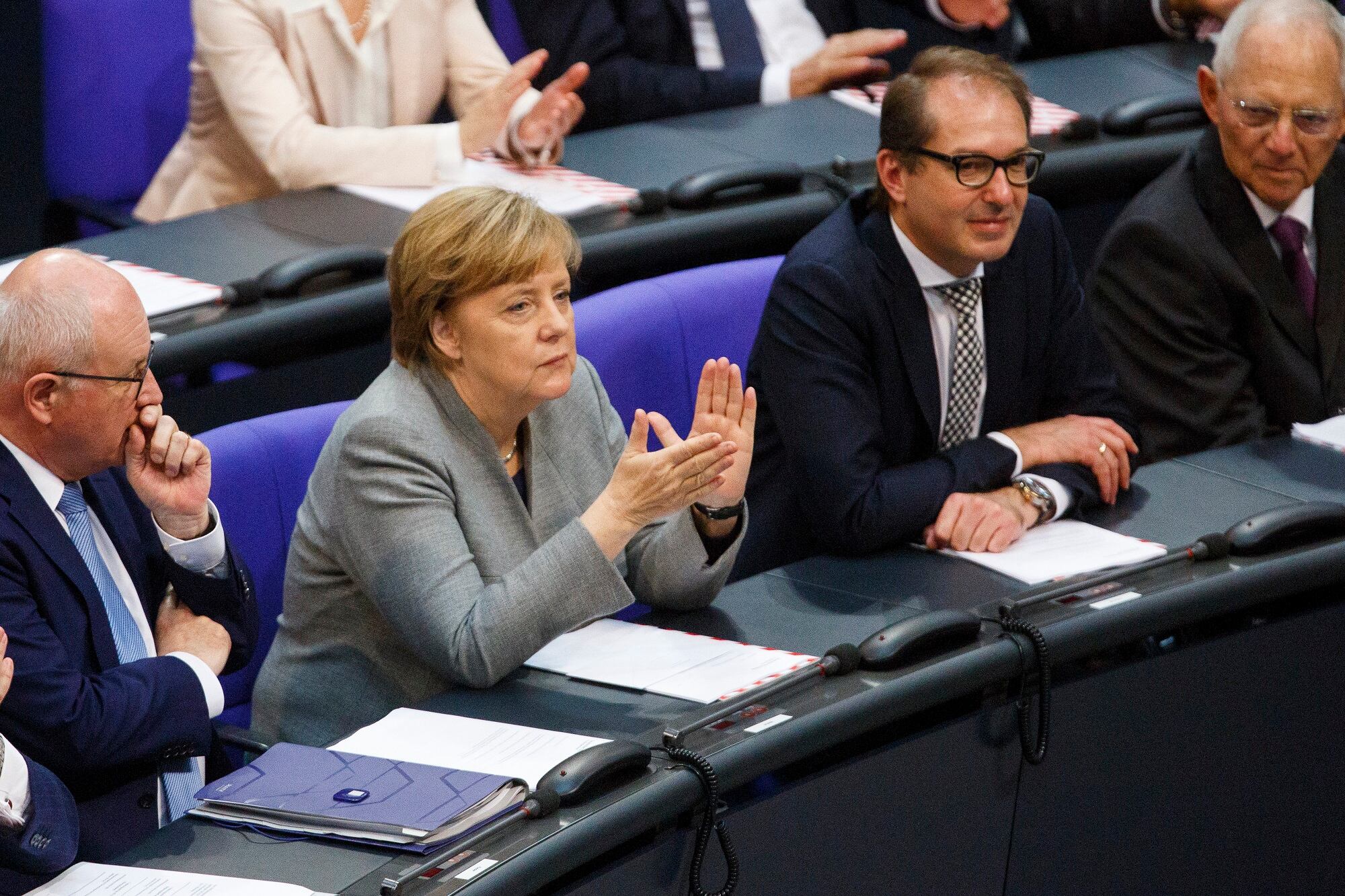COLOGNE, Germany — German government negotiators have approved a new defense and security direction for the country, coupling boosts in military expenditures with equal increases in foreign assistance.
Months of haggling over a new government led by Chancellor Angela Merkel culminated Wednesday as leaders of her center-right Christian Democratic Union, its sister party Christian Social Union and the center-left Social Democratic Party, or SPD, unveiled a written coalition agreement in Berlin.
Insiders say the topic of defense spending ended up being relatively uncontroversial during closed-door talks, and party negotiators agreed on language that would keep Germany in line with a pledge by NATO members to annually allocate 2 percent of gross domestic product by 2024.
Members of the SPD had decried that goal as unrealistic and unnecessary during last year’s election season.
In what could be a nod to critics of a rigid spending goal, the coalition agreement stresses that increases in the traditional military budget would come with plus-ups in fields that also have the potential to solve or prevent global crises. Those could include delivering humanitarian aid or funding educational projects abroad.
RELATED

Speaking in Berlin on Feb. 7, Merkel hailed the idea of a “netted security” approach, in which nonmilitary instruments of power would gain greater prominence.
As a major host of refugees from war-stricken Syria and impoverished North Africa, Germany’s security calculus includes removing the impetus for refugees having to stream into Europe in the first place.
Meanwhile, negotiators put on hold the acquisition of armed drones for the Bundeswehr — Germany’s armed forces — until lawmakers can answer all legal and ethical questions involved.
At the same time, the coalition agreement approves leasing the Israeli drone Heron TP for surveillance. The SPD blocked plans for a weapons-capable version of the aircraft last summer.

Development of a so-called Euro Drone, a key capability under the emerging defense regime of the European Union, will proceed as planned, according to the document.
The Bundeswehr’s slow, internal acquisition processes, negotiators wrote, are in line for a major reform effort by the end of 2019. Policies requiring EU-wide program competitions could be waived to achieve greater speed for urgently needed equipment. That also would apply for projects involving technologies deemed key for the domestic industrial base.
In addition, there are plans for a new agency devoted to developing “disruptive” cybersecurity and sensitive technologies, the document states.
Overall, the defense section of the coalition agreement strives to strike a balance between Germany’s alliance with Washington and its place as a key player in Europe. While it pledges that Berlin would “breathe life” into a common EU defense policy, it notes that the Unites States is undergoing “far-reaching change” that would present great challenges.
“We will react to this with offers for dialogue and cooperation,” negotiators wrote, adding that members of the new government would seek additional avenues for working with the Trump administration, Congress and state governments.
The coalition agreement must be internally approved by each of the parties. In the case of the SPD, its leaders are expected to face stiff opposition within its own ranks, especially among the younger generation.
Sebastian Sprenger is associate editor for Europe at Defense News, reporting on the state of the defense market in the region, and on U.S.-Europe cooperation and multi-national investments in defense and global security. Previously he served as managing editor for Defense News. He is based in Cologne, Germany.








